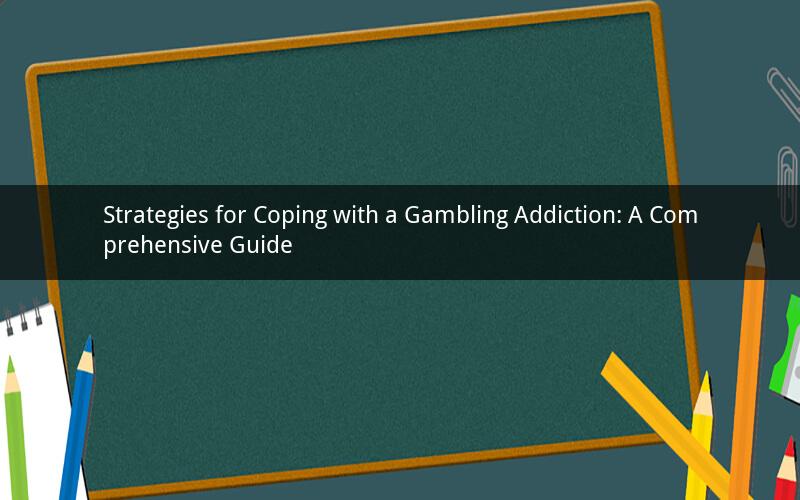
Gambling addiction, also known as pathological gambling, is a condition characterized by the inability to control the urge to gamble, despite negative consequences. If you find yourself struggling with a gambling addiction, it's essential to take immediate action to regain control of your life. This guide will provide you with valuable insights on how to overcome this challenging issue and rebuild your life.
1. Acknowledge the Problem
The first step in addressing a gambling addiction is to admit that you have a problem. This can be difficult, as addiction often involves a denial of the problem's severity. However, recognizing the problem is crucial for seeking help and making the necessary changes. To help you acknowledge the issue, consider the following:
- Assess the negative consequences of your gambling addiction, such as financial strain, damaged relationships, and emotional turmoil.
- Reflect on the reasons why you started gambling and the emotions it brings.
- Compare your gambling behavior to healthy boundaries and patterns.
2. Seek Professional Help
Dealing with a gambling addiction requires professional guidance. Therapists, counselors, and psychologists specializing in addiction can provide the necessary support and resources to overcome your addiction. Here are some treatment options to consider:
- Cognitive-behavioral therapy (CBT): CBT helps individuals identify and change negative thought patterns associated with gambling addiction.
- Group therapy: Sharing your experiences with others struggling with similar issues can be a source of comfort and motivation.
- Residential treatment: For severe cases, residential treatment programs can offer a structured environment to overcome addiction.
3. Create a Support System
Surrounding yourself with supportive individuals is essential in overcoming a gambling addiction. Your support system can include family, friends, or support groups. Consider the following strategies to build a strong support network:
- Communicate your addiction and the need for support to those you trust.
- Attend support group meetings, such as Gamblers Anonymous, to connect with others experiencing similar challenges.
- Establish boundaries with friends and family to avoid enabling your gambling behavior.
4. Develop Coping Skills
Learning new coping skills is essential to maintain sobriety from gambling addiction. These skills can help you manage stress, boredom, and other triggers that may lead to relapse. Some coping strategies include:
- Mindfulness and meditation: These practices can help you stay grounded and focused on the present moment.
- Exercise: Regular physical activity can boost your mood, reduce stress, and improve overall well-being.
- Hobbies and interests: Engaging in hobbies and interests can provide a healthy alternative to gambling.
5. Create a Financial Plan
One of the most challenging aspects of a gambling addiction is the financial burden it imposes. To overcome this issue, it's crucial to create a financial plan that addresses your debts and prevents future gambling. Here are some steps to take:
- Consult with a financial advisor to help you develop a repayment plan for your debts.
- Cut up credit cards and remove access to online banking to avoid impulse purchases.
- Establish a budget and stick to it to manage your finances responsibly.
5 Questions and Answers:
1. Q: How can I know if I have a gambling addiction?
A: You have a gambling addiction if you find it difficult to control your urge to gamble, despite negative consequences. Symptoms include borrowing money to gamble, lying about your gambling activities, and prioritizing gambling over other responsibilities.
2. Q: Can I overcome a gambling addiction on my own?
A: While some individuals may manage to overcome their addiction with self-help strategies, seeking professional help is often the most effective approach. Therapists and counselors can provide personalized support and tools to help you regain control of your life.
3. Q: Is it possible to recover from a gambling addiction?
A: Yes, it is possible to recover from a gambling addiction. Many individuals have successfully overcome their addiction with the right support, treatment, and commitment to change.
4. Q: How long does it take to recover from a gambling addiction?
A: The recovery process can vary significantly from person to person. Some individuals may experience immediate improvements, while others may need ongoing support and treatment for several years.
5. Q: Can a gambling addiction affect my relationships?
A: Yes, a gambling addiction can significantly impact your relationships. It may lead to financial strain, emotional turmoil, and trust issues. Rebuilding your relationships may require time, effort, and the willingness to make changes.